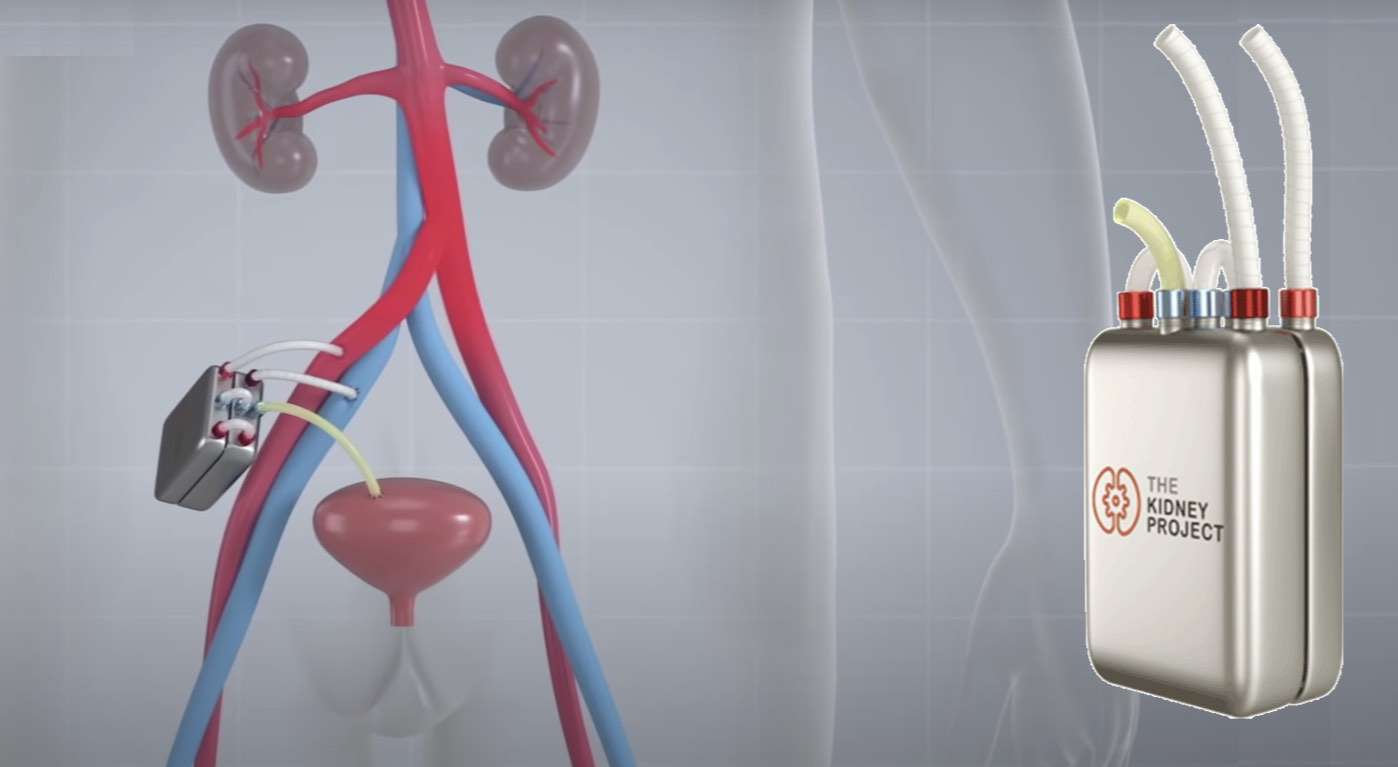Ultrasound Scanners Inside of a Bra Could Detect Breast Cancer Earlier, and Between Screenings
The device was developed at MIT, at once worn, it allows the user to move an ultrasound tracker across the bra and check for tumors.

Sufferers living with kidney failure can soon look forward to a future without dialysis or a long waits for an organ transplant, thanks to efforts from the University of California in San Francisco that produced an implantable device that mimics the organ's daily functions.
Their first clinical trial showed that kidney cells, housed within the device called a bioreactor, can work quietly in the background, like a pacemaker, and does not trigger the recipient's immune system to go on the attack—a major stumbling block for patients who need to take harsh immunity-suppressing drugs after receive donor transplants.
More than 500,000 people in the U.S. require dialysis several times a week, whereby their blood is filtered by a machine. Many seek kidney transplants, but there are not enough donors, and only about 20,000 people receive them each year. An implantable artificial kidney would be a boon.
The device, developed by the university's Kidney Project, has been successfully implanted and tested in pigs for seven days. The next step will be a month-long trial—first in animals and then humans.
The scientists plan to fill the bioreactor with additional kidney cells that can mimic all the functions, such as balancing the body's fluids and releasing hormones to regulate blood pressure—then, a full artificial kidney will be born.
"The bioartificial kidney will make treatment for kidney disease more effective and also much more tolerable and comfortable," said Dr. Shuvo Roy, a bioengineering professor in the UCSF School of Pharmacy.
"We needed to prove that a functional bioreactor will not require immunosuppressant drugs, and we did. We had no complications and can now iterate up, reaching for the whole panel of kidney functions at the human scale."
In a study published in the journal Nature Communications, the team details how the engineered bioreactor can connect directly to blood vessels and veins, allowing the passage of nutrients and oxygen, much like a transplanted kidney would. (See the video below.)
Silicon membranes keep the kidney cells inside the bioreactor safe from attack by the recipient's immune cells.
The team used a type of kidney cell called a proximal tubule cell, which regulates water and salt, as a test case. Co-author H. David Humes, MD, from the University of Michigan, had previously used these cells to help dialysis patients in the intensive care unit with life-saving results.
They tracked data from the kidney cells inside the bioreactor and the recipient animals for seven days after transplantation and both did well.
See how it works…
DON'T FORGET to Share The Incredible Breakthrough on Social Media…
Be the first to comment